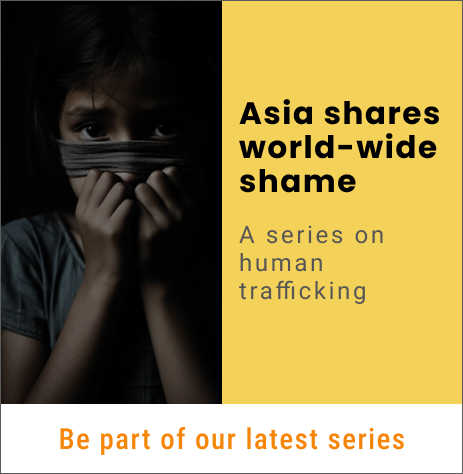A Catholic bishop, who fled his cathedral and residence after the military took them over in a conflict-torn region of Myanmar, has appealed to displaced Catholics like him to work hard for peace.
“It is time to find true freedom and lasting peace by building reconciliation and giving up hatred, aggression and hostility,” Bishop Celso Ba Shwe of Loikaw in eastern Kayah state said in his homily at St. Joseph Cathedral of Taunggyi archdiocese in the Shan State on March 3.
Hundreds of Catholics joined the liturgy, and most participants were internally displaced people like the bishop himself.

The 59-year-old bishop initially fled to Shan state last November, but later moved to Demoso, a town in Kayah state, within his diocesan area.
From his new residence, he has been making pastoral visits to Catholics, who fled their villages to escape ongoing conflict in Kayah and other states, a Church source said.
The ordeal of Shwe and other Catholics highlights how the conflict in Myanmar has disrupted Church systems and life.
The ecclesiastical boundaries have faded with people moving away with dozens of churches and institutes caught in the crossfire between junta forces and rebels in areas with significant Christian populations, reports say.
Shwe said people in Myanmar have been forced to take a “tough” journey over the past three years because of the military coup and ensuing civil war.
The bishop was uprooted along with clergy, religious and laypeople when the military took over strategically important Loikaw city and occupied the Christ the King Cathedral complex, which houses the bishop’s house, pastoral center, clergy house, and a clinic on Nov. 27 last year.
The complex housed 82 people including 10 priests, 16 religious and employees.
The junta forces occupied the cathedral to use it as a shield against fast-advancing rebel forces, Shew said in a letter before fleeing. Rebel forces, which included Christians, were not expected to attack Christian places.
Shortly before offering Mass in Taunggyi, he met with displaced people in temporary camps.
He also recently visited a village in neighboring Pekhon diocese, which has also been hit hard by the violence.
Currently, Shwe is based in Sondu parish in Demoso — not far from his home in Loikaw — which is now home to thousands of displaced, who are living in church-run camps.
“He is arranging to build a temporary residence there,” a Church source who withheld his name told UCA News on March 4.
Shwe was unable to hold Christmas services, his first Christmas as the bishop of his diocese, after Pope Francis appointed him the Loikaw bishop in March 2023.
He also might not celebrate Easter services in his cathedral as is expected by Canon Law.
Except for grave reasons, Church law demands that bishops not be absent from their diocese on Christmas Day, during Holy Week, or on Easter Sunday, Pentecost, and Corpus Christi.
Technically Shwe is not absent from his diocese but the displacement from his cathedral and most of his people moving away from the diocesan area have disrupted Church life, sources said.
Since last November, about 40,000 out of an estimated 50,000 residents in Loikaw city, have fled their homes after the military launched offensives that have included air strikes and shelling against Karenni rebels fighting to take control of the city from the junta forces.
Despite the setbacks, Shwe remains defiant and never tires of meeting and encouraging hundreds of displaced people, local Catholics say.
He offers “moral support and spiritual guidance at a time when people have been traumatized by attacks and stressful experiences,” sources said.
Residents told UCA News that he made pastoral visits to displaced Catholics in Taunggyi city and Nyaung Shwe, a town in Shan state, one of the worst affected regions, in January.
Karenni rebels are believed to have Christian fighters among them. Christians, the majority of them Catholics, make up about 46 percent of the state’s more than 350,000 people.
In Loikaw, junta troops are positioned around Christ the King Cathedral and the pastoral center and launch attacks on rebel forces and civilian targets, local residents and media reports say.
On Feb. 12, shelling hit and damaged the Assumption Church in the Nananttaw area of Loikaw, Church sources confirmed.
So far, 12 churches have been hit by military attacks in Loikaw diocese. Some 31 out of its 41 parishes are almost empty as thousands of Catholics have fled to escape the fighting.
Most people or about 250,000 in Kayah state have been displaced by the conflict since the February 2021 coup, aid groups say.
They now live in about 200 camps, with some 80,000 housed in Church-run camps.
Displaced Catholics say they want to return home but the situation is not conducive.
“We are yearning to return, but we have no idea how long we will have to stay here as the situation in our hometown remains precarious,” Pray Reh, 60, told UCA News.
Reh fled from Loikaw and is now with relatives in Taunggyi, a city in Shan state.
“We keep hearing bad news. Residential homes in Loikaw have been burned and we fear our home has also perished,” the father of three said.
Credit: Source link




